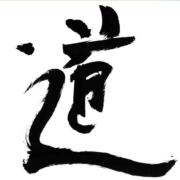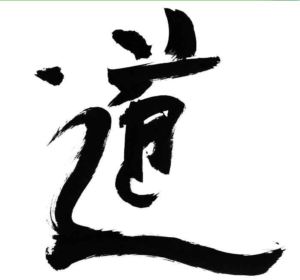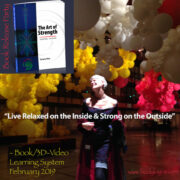Is It Tao or Dao?
Is it Tao te Ching or Dao de Jing? The spelling of Chinese words is confusing and inconsistent. Here’s an explanation.
Chinese writing consists of simplified images called pictograms, which represent words. Many Chinese pictograms combine two or more images. So the word for forest is simply a few trees combined into one pictogram. The choices within a pictogram can say a lot more about a word than what Western letters communicate.
A good example of this is the word Tao, the Way (seen above). It combines the image of taking a step and that of a head. You walk using your head – both when choosing a direction and in learning from the walk. One could say that it’s a way for mind and body to align. A spiritual path, if you will.
Pictograms illustrate the meaning of a word while analyzing the history and origin of the word. But it doesn’t help much in pronunciation or spelling.
The Western alphabet is all about pronunciation. In Western language, there is pretty much a consensus about how each letter is pronounced. Chinese pronunciation isn’t based on the Western letters and their sounds; in fact, the Chinese have sounds that differ slightly from the ones we are accustomed to. Again, Tao is a good example.
The sound for “T” is pronounced somewhere between a “T” and a “D” in our ears, somewhere between the unvoiced and voiced consonant. It was translated as “Tao” in the late 19th/early 20th centuries using a Romanization system called Wade-Giles. “Dao” was later transcribed into the Western alphabet using a Chinese adaptation called Pinyin.
The “unvoiced T––voiced D” is far from the only difference in transcriptions. Here are other differences in Tao’s transmutation:
Wade-Giles
Tao te Ching
Lao Tzu
Chi
I ching
T’ai chi
Pinyin
Dao de Jing
Lao zi
Qi
Yi jing
Taiji
English
Scripture of the Way
Founder of Taoism
Energy
Book of changes
Great art of boxing
And the list continues.
The mystery of pictograms lives on.




